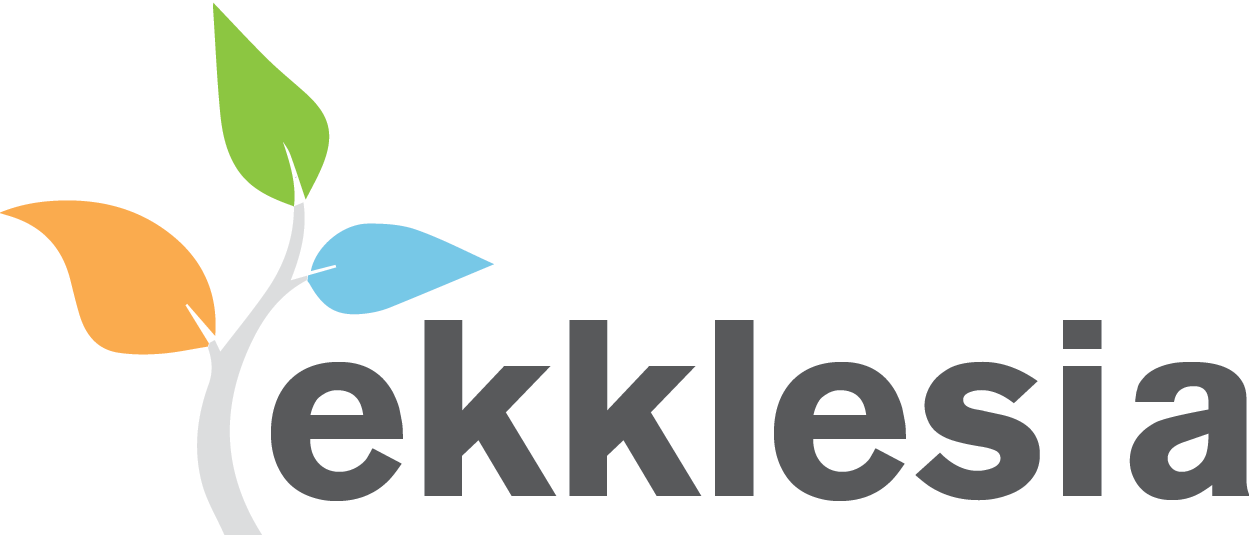“Do the best you can until you know better. Then when you know better, do better.”
— Maya Angelou
“One of the most sincere forms of respect is actually listening to what another has to say.”
— Bryant H. McGill
GET STARTED
Watch and read these 4 short introductory videos and articles on common questions and misconceptions about racial issues in the United States.
1
Uncomfortable Conversations with a Black Man
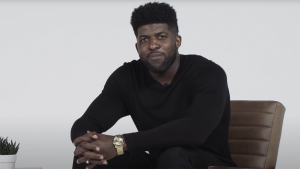
Uncomfortable Conversations with a Black Man is a safe place to have the uncomfortable conversations about race that many white people may have never been able to have. This is a series of 8 video conversations led by Emmanuel Acho, former NFL Player and sports commentator.
[Videos]
3
You asked, I answered: 7 Difficult Questions about Racism
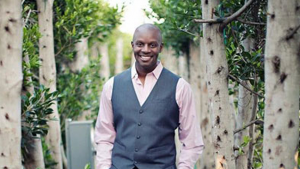
Blogger Shola Richards answers the seven most common questions asked after writing an article entitled “Why I Will Never Walk My Dog In My ‘Nice’ Neighborhood Without Bringing My Daughters Along.”
[Article: Approx 10 minutes to read]
2
The answers to 10 common questions about racism
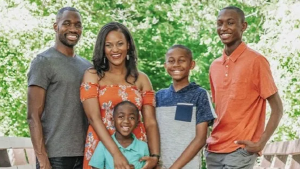
Jehava Brown, a social media influencer, answers commonly asked questions concerning racial issues. [Article: Approx 5 min to read]
4
Debunking the most common myths white people tell about race
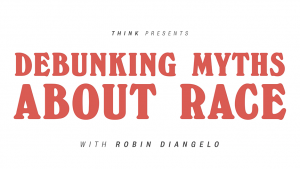
Robin DeAngelo, author of ‘White Fragility,’ unpacks common excuses white people make about race- and how to address them.
[Video: 3:31]
SELECT QUESTIONS AND STATEMENTS
Taken from real life conversations, the following questions and statements are meant to enable you to have more informed conversations with others concerning racial issues.
“I get that there were a lot of racists people in the past, and still today you may occasionally run into an individual who is racist, but is it still really a problem today?”
It can be easy for white people to think that racism is an issue of the past since most go through their day without encountering any discomfort due to the color of their skin. Although some suggest we are “post-racial,” unfortunately race can still play a defining role in a Black person’s everyday experiences as well as life outcomes. By thinking we are a post-racial society, it discounts these lived experiences. Furthermore, racism is often viewed as an individual disliking or mistreating another based on race, when there is much more to it than that. Racism also exists as a system of advantages that centers on whiteness, which creates a hierarchy of power that often goes unnoticed by the typical white person since it does not impact them directly. [Read More]
“What is systemic racism?”
It is important to recognize that there are different levels when referring to racism. The easiest to recognize is the overt, intentional racist acts of individuals. However, focusing solely on individual stories of racist incidents distorts our sense of how racism works. Systemic racism refers to systems within and across institutions and society, such as the housing market, prison system, education, and political power that are structured in a way that have historically advantaged white people over others, and continue to routinely produce racially unjust outcomes and disparities. [Video: 4:23]
“What is wrong with saying, ‘All Lives Matter?’”
The statement “Black Lives Matter” isn’t saying that other lives don’t matter, it is asking for Black lives to be valued in the same way as white lives, particularly in policing matters. [Video: 3:49]
Focusing on a specific group in distress in no way devalues any other group. DeRay McKesson puts it this way, “It’s this interesting thing that people are frustrated that black people are focusing on the unique trauma that black people are facing in this country. I would never go to a breast cancer rally and yell out ‘colon cancer matters.’ And that’s what people are doing here.” Additionally, before the “Black Lives Matter” movement, the phrase “All Lives Matter” as a slogan didn’t even exist. Saying “All Lives Matter” silences Black voices and deflects the very real anguish Black people are experiencing. [Read More]
“I’m white, and I didn’t grow up with a lot of money. I had to work hard for everything I have. How can anyone tell me I have ‘privilege’?”
There are many types of privilege: Privilege associated with your skin color, financial status, gender, etc. People can be privileged in some areas and not other areas. White privilege is not saying your life hasn’t been hard, it’s saying your skin color isn’t a contributing factor to or cause of your difficulties (Read More). In a broader sense, white privilege also refers to white people historically having comparatively better access than non-white people to education, loans, inheritances, medical care, positions of power and influence, etc. [Read More]
“It’s hard to talk about racism because people can get pushy or angry. Why can’t everyone just be nice and have a civilized conversation?”
Tone Policing misses the point in discussions about racism and provides a way for white people to dismiss both the discussion AND Black people’s feelings of hurt and frustration. Focusing on how the information is delivered rather than the content of the message impedes efforts to have a legitimate discussion about specific issues. This deflection is also often used as a defense mechanism so the person who is tone policing does not have to answer for their own thoughts or actions. [Read More]
”What is wrong with saying that I don’t see color? I treat everyone the same, regardless of the color of their skin.”
Claiming “color blindness,” while seemingly well-intentioned, overlooks unique challenges Black people face due to skin color, and denies the ways in which racial differences have real impact. Saying “I’m color blind” can often be used as a tool to shut down any conversations about the realities of racism, and deflect from the need for the person claiming to be color-blind to examine their own bias. [Read More]
“I have a friend who is Black so I will just ask them to explain racial issues. If they want change, shouldn’t they be willing to teach me?”
Expecting your Black friends to teach you puts the burden of your education on another person, who is already most likely living with the effects of the cumulative grief of racial injustices, in addition to daily racial insensitivities. There is a mountain of information on the web in which to educate yourself, and utilizing this resource site is a great start. Additionally, self-assess to determine your motives: are you asking as a way to absolve white guilt? Do you want to disprove what they are saying? Do you want to be seen as caring just because you asked, or do you truly want to learn how to become better informed about racial issues and take action? A more conducive approach is to ask informed questions after you research on your own, and then listen to understand, not defend. [Read More] *brief strong language
“My Black friend doesn’t agree with the BLM movement, or that there is even a race problem.”
Unfortunately, often white individuals view themselves as a unique person with their own independent thoughts, but then choose to see one black person’s opinion as representative of all Black people. To make matters worse, some have even weaponized a particular Black person’s voice that agrees with their own position in order to dismiss claims of any racial injustice. Just as a white person wouldn’t want any one person’s opinion to speak for all white people in society, the same holds true for Black people. [Watch Video]
“What are microaggressions?”
Jenée Desmond-Harris describes microaggressions in her article What exactly is a microaggression? “[Microaggressions] are something very specific: the kinds of remarks, questions, or actions that are painful because they have to do with a person’s membership in a group that’s discriminated against or subject to stereotypes. And a key part of what makes them so disconcerting is that they happen casually, frequently, and often without any harm intended, in everyday life.“ Example comments: “You’re so well spoken,” “You don’t sound Black,” “Where are you actually from?” Example actions: Assuming the Black person is in a service position instead of a professional position, tightening your grip on your purse and/or putting distance between yourself and a Black man, and touching a Black woman’s hair (Yes, this is a thing and happens far more frequently than you’d think.) [Read More]
“Well, Oprah Winfrey, Jay-Z, and Robert Johnson are very successful, so isn’t that evidence that race doesn’t hold someone back and there is equal opportunity if you work hard enough?”
The United States has a long history of racial injustices, leading to a myriad of disparities that have contributed to an enormous median wealth gap between white households and Black households. Research data shows that Black Americans, from blue collar workers to executives, still face obstacles to advancement, even when compared to other minority groups or white women. Although it is common for companies to promote their diversity initiatives, it is often not reflected in outcomes for Black employees, such as leadership advancement and board membership. Furthermore, unequal access to credit, investment funds, and other wealth building mechanisms contribute to the disparities. Just one of many examples of this is highlighted in the recent Wells Fargo Bank CEO comments and lawsuit settlement concerning hiring bias.
Dana L. Cloud states, “The deep desire for white Americans to tokenize successful Black people as a means to bury the realities of systemic racism and push ideologies of merit based achievement have been one of tools of this country since its inception. From the ‘happy slave’ to ‘but look at Oprah and Obama’, these efforts push to reinforce the ‘American Dream’ to Black Americans despite the structural economic and political barriers that exist in our racist society. Tokenism glorifies the exception in order to obscure the rules of the game of success in a capitalist society.” [Source]
“What does ‘defund the police’ mean?”
“Defund the police” means reallocating a portion of government funding from police departments to other government agencies. A majority of police calls are for non-violent situations, and there may be better alternatives to calling the police for certain situations. While police budgets take a large percentage of city budgets, it has most often been at the expense of defunding community service needs, such as education programs, mental health counseling, and job training. [Read more]
“Officers are here to serve and protect, and they put their lives on the line. I know plenty of cops, and none of them are racist. If the Black person just obeyed the officer, no harm would come to them.”
Unfortunately, studies show that whether police officers consciously mean to or not, Black people are disproportionately pulled over and subsequently searched by police, although no more likely than whites to break traffic laws or have contraband, much more likely to be wrongly convicted, and more likely to be fatally shot by police than white people. Living in areas that simultaneously have very high rates of arrest for minor offenses white folks routinely get away with, but shockingly low arrest rates for serious violent crime, as well as lack of accountability and police misconduct, lead to feelings of fear and loss of confidence in the justice system. This in turn promotes a vicious cycle of mistrust for all involved.
“I get that killing George Floyd was wrong, but the protests are so out of hand. Just look at all the destruction Black people are doing. How can they expect others to support them?”
According to a new study, 97% of protests have been peaceful. However, images on the news and on social media largely focus on the damage and mayhem. Bias is also evident when you see Black people exclusively being presented as “thugs” and the perpetrators of destruction, when there is plenty of evidence of white instigation while Black attendees try to discourage destruction (Examples: Minnesota, Oregon, San Francisco). The BLM movement is orchestrated by Black people, so they are subsequently blamed for anything that happens as a result of the protests. Furthermore, even peaceful protestors are frequently being characterized as looters and vandals, deflecting from the inequities and injustices that precipitated the protests. Even more troubling is the idea that property damage is a reason to dismiss the entire movement that challenges systems that have led to a disproportionately high number of Black deaths to go unnoticed and unpunished, and to not acknowledge the accompanying pain these and other disparities cause. [Video]
“What about ‘Black on Black Crime’?”
Responding with “what about ‘Black on Black crime’?” to ‘Black Lives Matter’ protests implies that Black Americans are indifferent to the thousands of Black deaths by gun violence in some communities and only care when it is officers that are the ones taking Black lives. Black citizens routinely speak up about neighborhood violence, and have literally formed hundreds of organizations to address the cycle of violent crime in some Black neighborhoods. In addition, it is not the appropriate context to compare neighborhood violence to the killing of unarmed Black men and women by officers who have been given legal authority to do so. Unlike biases in policing , the so called ‘black on black’ killings in a neighborhood aren’t due to the color of someone’s skin, it is the proximity the perpetrator and the victim share [Video]. Furthermore, FBI statistics demonstrate that there are similar violent crime rates where the perpetrator and victim are both white, but that isn’t referred to as ‘white on white’ crime in public discourse.
While statistically correct, using ‘Black on Black crime’ in reference to the violent crime in predominately low-income, Black neighborhoods is overly simplistic at best and dangerously misconstrued in order to ignore the long-term damages of government sanctioned discrimination practices and racially driven motives found through out the history of our country. [A History of Racial Injustice]
A much better path going forward is seeking to understand the ‘whys’ of the disproportionate presence of violent crime in certain neighborhoods. Economic disparities, racial trauma, recurring traumatic stresses, and the devaluing of Black lives through biased narratives, are just a few of many contributing factors that lead to to a sense of hopelessness and despair. This in turn will keep the cycle of violence going unless fully and honestly addressed on a systems-wide level.
Click here for an additional perspective on violence and gun control.
